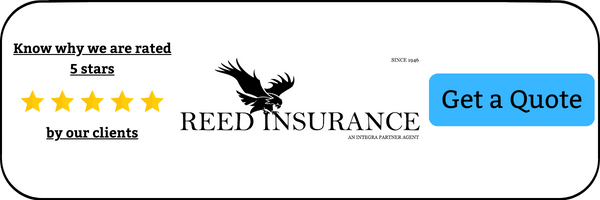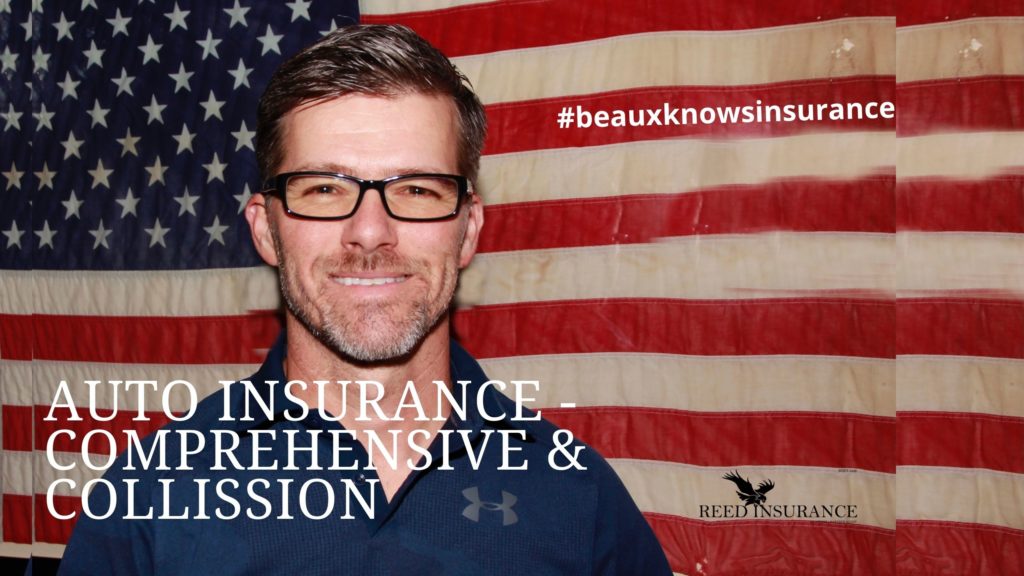
Auto Insurance Claims Process: Major Damage Accident
Today, I’m going to talk to you about the claims process for an auto insurance claim when there’s major damage. I’m talking about either a total loss or a substantial amount of damage to your car that’s going to render it inoperable.
In those different situations, there are going to be a lot of different things that you need to be aware of…
1. What’s the first thing you need to do?
2. How do you report the claim?
3. How is my insurance going to pay? Is it comprehensive? Is it collision? Something else? Is my liability going to come into play?
I’m going to help break all that down for you and help you to understand what to expect and what the best steps are for you, so that way the claim situation will go smoothly.
What’s the first thing you do?
Depending on the type of claim it is, you have a couple of different things that you may need to do. Let’s say that it’s just something that happens to your car, your car not moving and something happens to your car as a tree falls onto your car, or it catches on fire and you’re not sure why, or you have hail damage to it, or it gets flooded. All those different things are things that can happen to your car that we could almost say that they’re mother nature or that they’re acts of God. Your vehicle is stationary and something happens to your car. That’s going to fall underneath the comprehensive, and that’s going to be one of those things where you want to go ahead and just make sure that no more damage is going to happen to your car, take some photos of how it is as it is damaged, and then report that to your insurance agent.
Let’s say that your vehicle is moving or it was involved in an accident with another car. Those are both going to be situations that are going to fall underneath collision. I’ll break those two terms down a little bit more for you in a minute, but those that fall underneath collision, those are ones where you need to make sure that you have notified the local authorities and that they have responded to complete a report, a police report, highway patrol officer report, or whatever it is. On that report, it’s going to record different things, such as when did it happen? Where did it happen? What happened? It’s going to be an account from both of you as to what actually happened, as well as a diagram recording what transpired. It’s going to include both your contact information, as well as the other driver’s contact information, and if there’s somebody different that owns the vehicles, it’ll have their information. Your insurance company information will be on there also, as well as any sort of witnesses if there are witnesses to the incident. That report will help make sure that that’s a point of reference that you can point to say this is what happened, so that way if someone changes their stories or they can’t remember some of the details, well, they can point back to the police report and use that as a viable record.

What do I do after the accident?
The incident has happened, and you report it to the police, they’ve responded. And now, what do you do next? Well, now you need to report that to your insurance agent. Now, depending on the type of agent you have, if it’s a direct writer or an 800 number agent, both you’ll just wind up calling them and reporting it to them, and they’ll just record the claim and start the ball roll like that. If you have an independent insurance agent, they are going to take the time to help you to understand what the process will be, and then also how it’s going to impact you. They’ll also help you to try to determine potentially, should you expect to be found at fault or not. If you have any problems with the other insurance company in the event that the other insurance company should be responding, they will also help you to make sure you can either get it reported to them or take care of reporting it to yours and then letting your insurance company fight for you.
Just remember with an independent insurance agent, they’re there in your corner to back you and to help you because they’re working for you, versus a direct writer or 800 number agent, those are going to be working for the insurance company.
I’ve reported the claim.. now what?
You’ve reported a claim to your agent. They’re going to help you to know what’s going to happen next, and then also what insurance is going to apply in that situation. Depending on how the accident happened, you may be found at fault or you may not. If you’re found at fault, then your liability insurance is going to take care of the other party. If they are at fault, their insurance will take care of your injuries and damage to your property. But in both cases, you’re going to have to talk to an adjuster and he’s going to ask you for your story, what happened, and then also determine whether he needs to come and take a look at your vehicle, he needs to send you to a pro body shop that they already have a contract with that will work directly with the insurance company, or they will tell you to go get a couple of estimates and to report that back to them. In any of those cases, you should hear from an adjuster within 24 hours of reporting that claim.
If the other party should be at fault and you have not heard from them within 24 hours, you need to get with your independent agent and see if they can help you out, because either we need to take care of filing that underneath their insurance for you, or we need to file it underneath your insurance and let your insurance company fight for you. That’s where the police report will come into play. If you’ve got that, you can file the claim underneath their insurance, if they need to apply it there.
Comprehensive & Collision Coverages
Let’s talk now about the two different types of coverages that typically are going to apply for damages to your car if your insurance is having to pay. That’s going to be comprehensive and also collision. Now, collision, that is whenever you hit something or you overturn your car, that’s you’re driving or someone who has your car is driving and you either hit something or you turn your car over. Now, that something maybe a tree, it may be an animal, it may be a ditch, it could be a fence, it could be another car, it could be anything, but you’re driving or someone’s driving it and it actually strikes something. The other thing is going to be you just roll the car over. That’s a single-car accident, where you just roll the car over and you do some damage to it because of that. Both of those are going to be called a collision claim.

Auto Insurance- Comprehensive and Collision
Part of your auto insurance will make your car as good as new or replace it with a new one. But making the wrong decision here could cost you a lot of money!
Any of those instances underneath collision are going to be a chargeable claim against you. That means that it’s going to follow you for three to five years. Your insurance rates are going to be impacted in a negative manner, meaning it’s going to increase for the next three to five years. It does not matter if you change insurance companies. That is going to follow you. Those instances are recorded, and all insurance companies will have access to that information, so, unfortunately, you cannot run from those things. Depending on the insurance company, they will charge you for that somewhere between three years to five years, but typically it’s five. Depending on what happened and how large of a loss it is, either you’re going to have a total loss or it’s going to be a substantial amount of loss to it.
The adjuster’s going to take one of three routes.
- They’re going to take a look at the vehicle themselves and assess how much damage it is, whether it’s totaled or how much it’s going to cost to fix it.
- They may just work with a pro body shop and just let them take a look at it.
- They may tell you to go to a couple of different body shops and then let them estimate it.
Now, if it’s immovable, then it’s more than likely that either they’re going to bring it to a pro shop and let them evaluate it or an adjuster’s going to look at it. But probably if it’s a total, the adjuster’s going to actually have to put eyes on it and look at it.
What happens if you have a total loss to your vehicle
If you have a total loss, this is what’s going to happen. They’re going to evaluate what the value of that car is based on NADA Value. You need to understand certain things, one of them is it’s going to be based on that value, and including different things, such as age and wear and tear, if you’ve made some sort of improvements in the sense of you’ve replaced the motor, or replaced the transmission, or something like that, they will take that into account, so make sure that you tell them about that. If you make some sort of improvements or enhancements, such as you change the body, the body paint, you replace the types of rims on the vehicle, or you make some sort of other modifications, such as maybe to the stereo, or you add a GPS system or something like that- they’re not going to pay you for that unless you have specifically scheduled those things on your car. So, if you add some sort of a special bumper or something else like that, you need to make sure that your insurance agent knows about that and has added special coverage for that, or you will not be reimbursed for those items.
They’re going to assess it based on how that vehicle came from the factory unless you have replaced something that was standard on that vehicle, such as the transmission, or the motor, or something like that. Now, if you have replaced the motor with an enhanced motor, they’re not going to take into account that. But if you replaced it with like in kind or had the motor rebuilt, they will take that into a consideration. So, keep track of stuff like that.
All right. So, if the vehicle has been totaled or you’ve had a sizable claim, and you’re up to the stage where they’re going to now pay for the loss, understand that the insurance company is going to have to also include payment to whoever the leaseholder is or a lienholder if there is one. If there’s one, either one or two things is going to happen, either they’re going to pay them directly and then they’ll reimburse you the difference. Or they will write a check to both of you, and they will have to sign off to have that vehicle either paid, replaced, or repaired, so understand that.
If the vehicle is totaled, potentially you could find yourself in a position where you owe more money than the car is worth. A lot of dealerships will sell you coverage called gap insurance. That’s intended to make sure that does not happen. Your insurance company can actually sell you loan lease car coverage at the time that you buy the car, and it’s typically much less expensive than buying gap from the dealership, so ask your agent about that if they have not offered it to you already. That’s lien loss coverage, and it’s intended to take care of the difference between how much you owe versus how much the car is worth.
In the market right now, the costs are elevated. That could fall out at any time, and vehicle values could decline quickly without notice. If that happens, potentially you could owe more money than what your vehicle is worth. Also, if you put a very small down payment on your car, you could also end up in that situation, so make sure that you have purchased loan lease coverage to make sure that it does not happen. Every agent does not offer it. Your independent agent should offer that to you and should ask you or at least give you the option to buy that coverage. If they have not, maybe you need to find another agent.
We talked about the collision, let’s talk about comprehensive now. Comprehensive is the other type of claim. That’s where something happened to your car. That’s going to be something like a tree falling on your car, it caught on fire, there was rising water from a large rainstorm and it flooded your car, or you had hail damage. All these different things are things that happened to your car while it’s just sitting still, right? These are things that are going to fall underneath your comprehensive, and these are not chargeable claims. These fall underneath the title of comprehensive. It does not cover everything. It uses the word comprehensive. Sometimes they say other than collision is what some policies will say, but just understand it’s going to be a wide range of things that can happen to your car. Some of those other things are like windshields. If your windshield has been broken, it will fall underneath comprehensive.
Under both comprehensive and collision, you have a deductible that will apply. All that deductible means is just that’s how much you have to pay, then the policy pays for the rest. The purpose of the deductible really is to make sure that if you have a small claim, then you just take care of that out of your pocket. But we’re talking about a major claim, potentially a loss, the deductible still will apply, but that’s going to be just a part of the process.
I hope this has helped you to understand what to expect if you have a major loss to your vehicle, where we have a total loss, or just a substantial amount of damage to your vehicle. In those situations, make sure that you talked with your agent, let them give you some good advice, and just follow the advice that they give you, and make sure that you report back to them if you have any sort of questions, as well as also to your adjuster. I hope this video has helped you and helped you to understand better what to expect.

Find out what is different about us today:
Text or call: 318-336-5202
Email reed@reedinsla.com
You can meet our team HERE
You can start a quote HERE
We’ll be glad to take a look at your insurance coverage in any of the states of Louisiana, Texas, Arkansas, and Mississippi.
Thank you,
Beaux Pilgrim, CEO

Beaux Pilgrim
Reed Insurance
